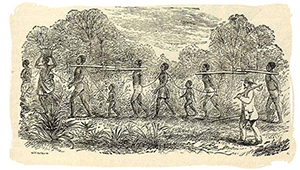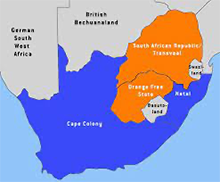The Boer Wars
Part 2: Tensions Build In some ways, the Boers preferred their new overseers to the previous ones. The VOC had been autocratic to a fault, and these actions often left the Boers chafing against an organization that had its headquarters rather far away. The same could be said of Great Britain, which in 1800 became the United Kingdom, although the Boers leaned more toward tolerance of their new masters initially. 
In the vein of masters, slavery was much a reality in the Dutch colony in southern Africa. It was very much a way of life in many European countries at the time, and the times when they abolished it varied widely. Some Boers had become used to having slaves working on their land and did not take kindly to the U.K.'s emancipating enslaved people in 1834. That and other actions by the government (which by that time had become just as aggravating to the Boers as the Dutch one had been) convinced a new wave of Boers to find new homes outside the traditional borders of the colony. In the decade beginning in 1835, more than 10,000 Boers left what had become the U.K.'s Cape Colony and migrated northward and/or eastward. In what historians call the Great Trek, these discontented people moved beyond the Orange River into the northern part of what became the Transvaal. These journeys were not without conflict, as the migrants had to fight their way in some cases into lands owned by others. 
The Boers were highly successful at establishing colonies but rather less successful at keeping them running independently. For nearly a century beginning in 1795, the Boers set up close to two dozen colonies throughout southern and southeastern Africa. Some were limited in lifespan. The longest was the Orange Free State, which began in 1854. Other well-known colonies included the Republic of Swellendam, the Republic of Graaff-Reinet, the Lydenburg Republic, and the South African Republic, also known as the Transvaal Republic. 
That colony was north of the Vaal River, and tens of thousands of Boers who were living there gained independence in 1852. They established their own government, with a president and a parliament, and were for a time successful at maintaining their independence. Economic troubles in the 1870s, coinciding with an unsuccessful campaign against indigenous neighbors, convinced the people that a change in government was needed. The neighboring U.K. leaders stepped into the void and, under the direction of Sir Theophilus Shepstone, declared that they were annexing the Transvaal. This was the pretext for the beginning of the First Boer War. |
|
Social Studies for Kids
copyright 2002–2026
David White




